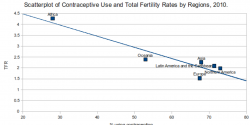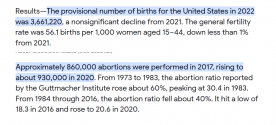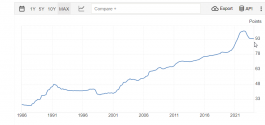TFR can fall drastically due to generational effects. The TFR calculation is:Like I said before those number are way off.
Even then, China TFR just a few years ago was like what? 1.8. that why these predictions makes no sense. I think the recent fall was due more the Covid restrictions, is even possible that TRF increase in the coming years due low housing and food prices, so if the next 5 years the TRF increase from 1.24 to 1.8 due low prices, all the sudden the predictions change?
In 2010 you would have say he same about Hungary when the TFR was 1.20. now is higher.
But I said before if the situation become extreme that threaten China as a country they will likely force motherhood or adopt measures like banning contraceptives or taxing the childless or pressuring women to pursue motherhood instead of careers.
5 * (births/women 15-19, ..., births/women 45-49)
In other words, it is a population weighted sum of births/women in various age groups.
This number can drop suddenly if, for whatever reason, a follow-up generation isn't having as many children as earlier generations. So, for example, if women over 40 all actually had three children back when they were 30-35, but stopped once they hit 40, that would not show up in TFR, because only births are counted. To maintain the same TFR, women who are 30-35 today would have to be having the same amount of children, or another generation would have to make up for it.
If the current generation is delaying children until much later, then TFR could drop suddenly, because the older generations will have been "done" with having children, while the current generation is yet to have them. This could be why China suffered such a severe drop after 2017 as a generation of women is delaying marriage & children for education.
But, whether that is the case or not, sudden recoveries of TFR in East Asia is not known. It didn't happen in Japan or South Korea or Taiwan. It's not likely to happen in China without a revolution in policy. This is due to the education obsession in East Asia, where people are competing for ever more education, not less.





